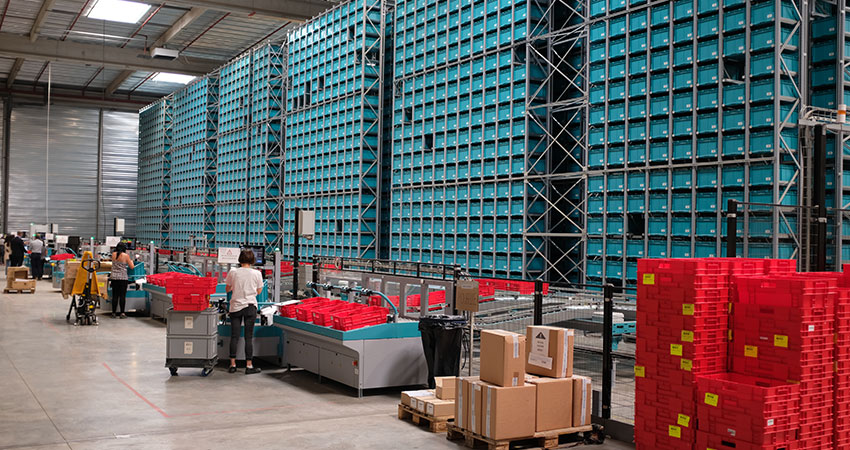Warehouse robotics firm Exotec has raised $335 million in a Series D funding round, reaching a valuation of $2 billion as the company looks to expand its business in North America, Europe and Asia and hire 500 engineers by 2025 to enhance capabilities like order picking and add unloading.
Goldman Sachs Asset Management led the round, with participation from existing investors 83North and Dell Technologies Capital.
Exotec claims it has doubled its revenue and tripled its customer base since closing a $90 million Series D funding round in the fall of 2020. In 2021, it signed eight enterprise accounts including Gap and Geodis. Decathlon recently began using Exotec’s SkyPod grid-based goods-to-person system at a Montreal fulfillment center, after successful deployments in Europe.
The company’s SkyPicker articulated arm, which can pick 600 items an hour, was introduced in February 2021 and will be the focus of R&D efforts to improve its performance, said Romain Moulin, CEO of Exotec. In July, the company passed the milestone of 2,000 robots deployed.
Echoing a common line in the robotics industry, Moulin said automation such as its robotic systems will never replace human workers in warehouses and fulfillment centers, but rather augment them.
“Robotics has been long misunderstood as a zero-sum equation between human and robot workers,” Moulin said. “The industry has since come to realize the balance is much more nuanced. We don’t believe robots will ever fully replace humans in the warehouse. Rather, Exotec systems create the right balance of human and robot workers to increase operator satisfaction, reduce churn, and sustain long-term productivity.”
He added that labor shortages and the hockey stick growth in ecommerce argues for more automation. This is playing out in what has been dubbed an “arms race” for automation and robotics, with companies waiting a year plus for installed systems from vendors due to extremely high demand and ongoing supply chain issues.
“We’re answering a pain point in the market,” Moulin said. “Companies need to do more with less, given the state of the labor market. At the same time, they don’t know what needs they’ll have three or five years down the road as the market evolves. In the event of a major sales spike or fluctuating demand, retailers and brands can deploy additional robots to scale their operations without disruption.”
Given the broad proliferation of warehouse robots for ecommerce fulfillment operations, MassRobotics began an effort in 2021 to develop interoperability standards for multi-system deployments.

